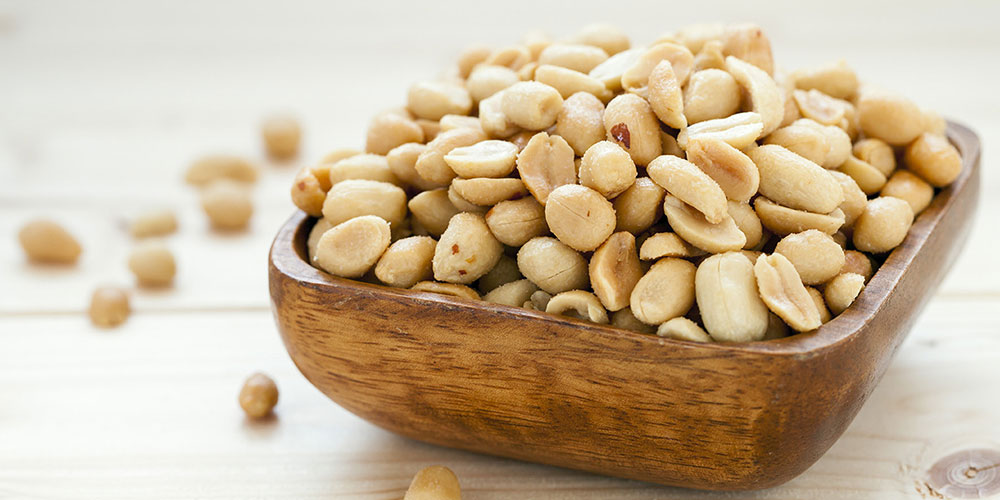Coconut Ice Cream
- 20 Apr - 26 Apr, 2024

Peanuts provide 567 calories per 100gm; 49g fat, 26g of protein, 16g of carbohydrates, 18mg of sodium and 705mg of potassium.
· Also known as groundnut or goober, peanuts are not nuts but actually legumes! These grow underground and not on trees like real nuts, such as chestnuts, hazelnuts, and acorns. Peanuts are edible seeds from inside pods and are part of the Leguminosae family along with soybeans, chickpeas, peas, clover, and lentils.
· Ever wonder who thought of turning these tasty little legumes into a butter-like paste in the first place? Researchers believe the ancient Aztecs started mashing up peanuts hundreds of years ago. A more modern version began to surface in the 1890s.
· To be called “peanut butter”, the jar must contain 90 per cent peanuts. The other ingredients may include oil, sugar or salt. It takes approximately 540 peanuts to make one 12-ounce jar of peanut butter. That is about 45 peanuts in every ounce of peanut butter.
· Former US Presidents Thomas Jefferson and Jimmy Carter were both peanut farmers. The former was the first U.S. President known to grow peanuts. While the latter’s connection to peanut farming dates back to his parents’ 360-acre farm; Carter himself began selling peanuts on the streets when he was only five years old.
· Arachibutyrophobia is the fear of peanut butter sticking to the roof of your mouth.
· Peanuts are a great source of protein.
· They also contain other healthy nutrients such as minerals, antioxidants, and vitamins.
· The amino acids in the peanuts are needed for growth and development.
· A peanut-based paste is used to treat severe malnutrition in emergency situations. It is given to children in developing countries when they need to gain weight quickly. The United Nations has used this peanut paste to help save lives around the world.
In a study published in The New England Journal of Medicine, researchers from the United Kingdom and the United States announced that early introduction of peanuts to the diet dramatically reduced the prevalence of peanut allergies, even if the child stopped eating peanuts when he or she got older.
COMMENTS